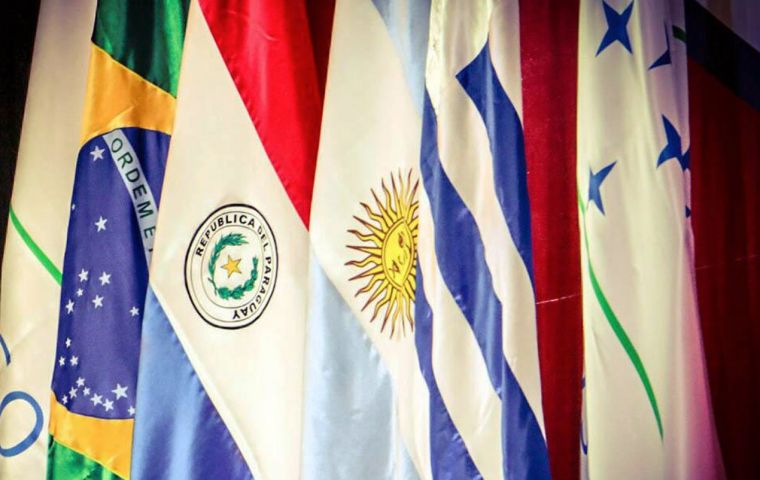MercoPress. South Atlantic News Agency
Beijing pushing Brazil for a quick FTA with Mercosur or individually, but consensus is elusive
 During a review of Brazil’s trade policy at the WTO, Chinese Ambassador Li Chenggang noted that Brazil concluded several free trade agreements and either renewed or started new negotiations
During a review of Brazil’s trade policy at the WTO, Chinese Ambassador Li Chenggang noted that Brazil concluded several free trade agreements and either renewed or started new negotiations An official document from Beijing states that China is ready to negotiate a free trade agreement (FTA) with Mercosur or separately with any member of the bloc. This contentious topic most probably will be included in the bilateral agenda when President Lula da Silva visits China in the near future.
During the 20th Congress of the Chinese Communist Party in October, a report presented by President Xi Jinping highlighted the Chinese strategy of seeking “greater integration into the global industrial chain and supply chain and (continue) to promote trade liberalization and facilitation of investments.” To that end, the country plans to negotiate “high standard free trade agreements” with its trading partners.
At the end of November, during the review of Brazil’s trade policy at the World Trade Organization (WTO), Chinese Ambassador Li Chenggang noted that Brazil concluded several free trade agreements and either renewed or started new negotiations, sending Beijing a message: “China believes it is essential to improve Brazil’s regional integration and export diversification. In this regard, China encourages Brazil to play an active role in expanding Mercosur’s network of regional trade agreements with key trading partners.”
Ambassador Chenggang also recalled that China has been Brazil’s largest trading partner since 2009, its biggest market for Brazilian exports, a significant source of imports, and a vital contributor to the Brazilian trade surplus.
Asked to comment by the Brazilian Valor press agency, the Chinese Ministry of Commerce (Mofcom) responded bluntly: “This means that China is willing to negotiate a free trade agreement (FTA) with Mercosur as a whole or an FTA with any member of Mercosur.”
Beijing has already signed 22 free trade agreements, including with Chile and Peru in South America, as well as another ten that are still being negotiated and eight “under consideration,” including one with Colombia.
However Mercosur members are limited by their treaty since all resolutions must be in consensus, particularly Argentina which is most concentrated in its domestic market, industries and jobs.
China also conducted a feasibility study in collaboration with Uruguay, which would result in the demise of Mercosur as a customs union. Beijing would be better off diplomatically negotiating with Mercosur as a whole. However, it also confirms the option of plan B, which is to negotiate separately.
Diplomat and economist Tatiana Rosito, now Brazil's Secretary of International Economic Affairs at the Ministry of Finance, cites a 2019 Ipea (Applied Economic Research Institute) study that argues that a FTA with China would bring “unequivocally positive results for the Brazilian economy in terms of GDP gains, investment, exports, and imports. The trade balance would be a little worse, but there would be a significant reduction in the aggregate price level and an increase in the degree of openness of the economy.”
Among the top exports of Brazil to China in the first eleven months of 2022 are iron ore, soybeans, crude oil, wood pulp, sugar, beef, pork, chicken meat, manganese.
However, such an analysis is not a consensus in Brazilian industry. “I don’t know of any segment [in Brazil] that, first of all, has a large enough output, and second, that has the appetite to take the risk of increasing business in a market of that size. China is not a market to sell surpluses. Distributors aren’t interested in small volumes,” points out Marcos Caramuru, former ambassador of Brazil to China (2016-2018).




Top Comments
Disclaimer & comment rulesCommenting for this story is now closed.
If you have a Facebook account, become a fan and comment on our Facebook Page!